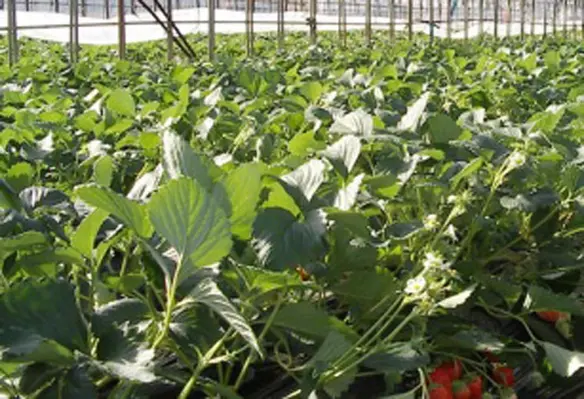Japanese chemical company Denka has commercialized a new cultivation system that rids the need of soil
The method involves growing plants on a polymer film containing nutrients, and offers the advantage of greatly reducing the volume of water and fertilizer used, compared to conventional hydroponics. In Japan, the method has already been adopted for growing tomatoes, and in the future Denka aims to develop it overseas in locations where there are problems with soil or water.
"This is the most delicious tomato I've ever eaten," said one person after trying a tomato grown using Denka's system in June in a farming region of Kanagawa Prefecture.
Denka was founded in 1915 as a fertilizer producer and agribusiness remains one of its core operations. As chemical companies both at home and abroad have expanded fertilizer production to meet demand accompanying global population growth, price competition has become intense and the influx of inexpensive imports has grown. "Our aim was to plant the seeds of new businesses using cutting-edge agricultural methods," explained a Denka official.
Denka teamed up with Mebiol to develop a cultivation system using Mebiol's polymer film. Sales began in November 2015.
Crops are grown by placing a water-stopping sheet and nonwoven cloth on the ground and spreading the polymer film on top of that. For fertilizer, humic acid, which is the primary component of compost and stimulates the action of the roots, is used. From a special tube installed under the film, a culture solution including the liquid fertilizer flows into the film. Compared to conventional hydroponics, this method reduces the quantity of both water and fertilizer needed by more than half. It can also boost harvests by around 10 per cent.
Unlike leaf crops like lettuce, a moderate degree of "water stress" is necessary to make fruit-bearing crops like tomatoes taste good. In an environment with little water, "the plant tries to protect itself, and in so doing stockpiles nutrients," the official explained, and the result is fruits and vegetables with copious amounts of sugar and amino acids, thus making them taste better.
Denka's system makes it easier to apply moderate water stress compared to hydroponics, in which the plant's roots are always in water. On the other hand, because there is a risk that the plant will dry out if there is too little water, liquid fertilizer also flows from a tube installed on top of the film, thereby managing proper quantities.




